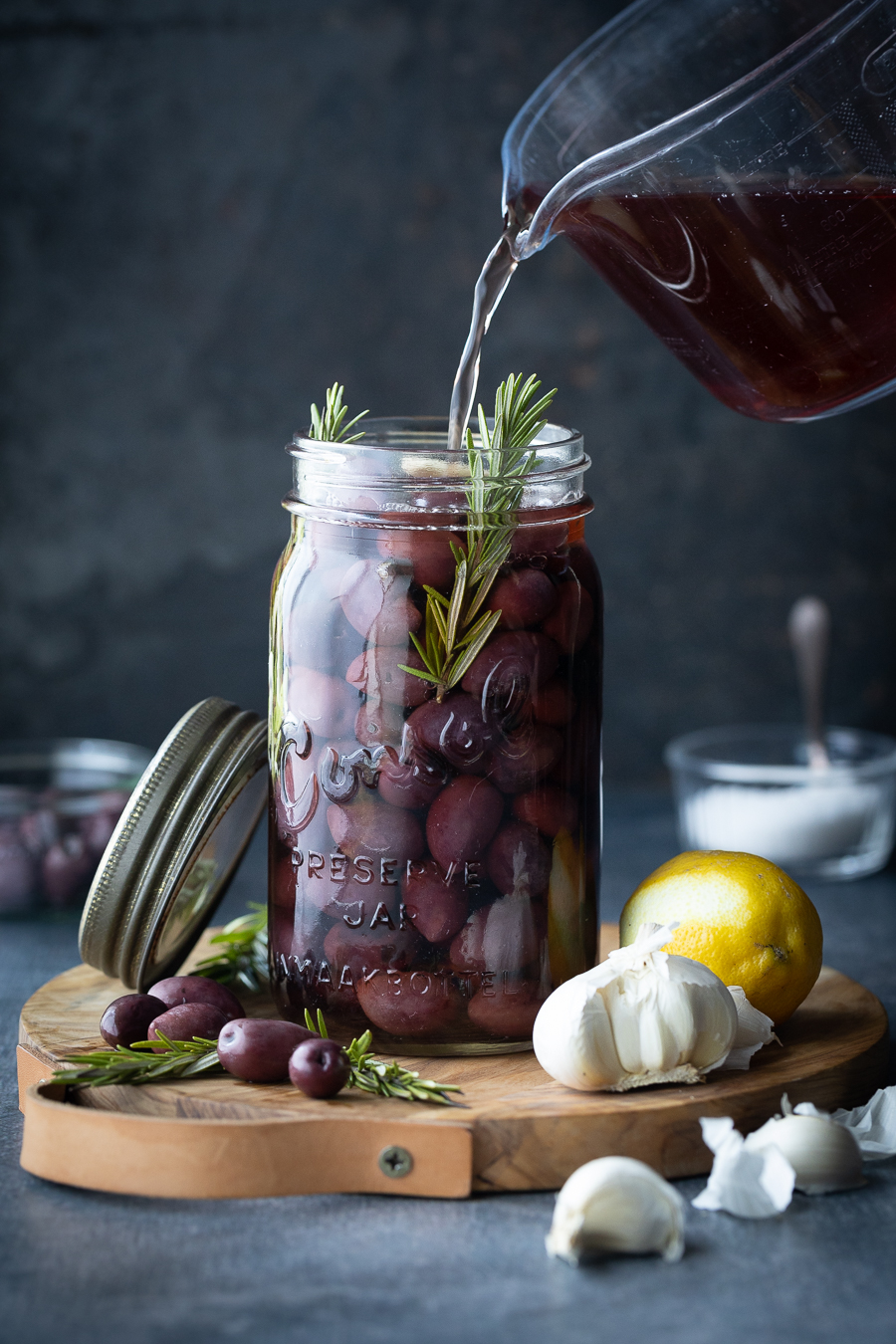
I realize that I’m posting this recipe while the SA olive harvest has already come to an end, but perhaps you can save it for next year. I was invited to a function at Tokara’s Olive Shed in May this year, where we had the opportunity to pick our own olives and received a recipe on how to cure them. I’ve since cured and bottled my olives (kept them in the brine way longer than the recipe stated, but they look fabulous!), and got the permission from Tokara’s team to share it. So here you go – a recipe from the olive masters themselves.
My own notes:
- The ingredients for the brine will be repeated several times, but it’s only salt & water so it’s cheap and easy.
- When the method asks for “weighing down” the olives, it means that you need them submersed in the brining liquid. I did this with a fully glazed ceramic plate that fitted inside my bucket – it’s heavy enough and non-reactive, but the Tokara team uses a stainless steel plate.
- If you leave your olives in the brining liquid longer than a week (say, a few weeks at a time, like I did), a layer of mold will form at the top of the brining liquid, covering the top layer of olives. This mold is not bad, it can be rinsed off easily, and is a natural part of the curing process. Don’t throw your olives away if you see it!
Ingredients:
- 2kg ripe fresh olives (I used kalamata)
- 45 ml salt
- 1 liter water
Wash the olives under cold water and place them in a bucket (roughly 4 liter capacity). In a large measuring jug, make a brine by dissolving 3 tablespoons of salt in 1 litre of water. Pour the brine over the washed olives. Place a heavy object on a large plate (stainless steel recommended) to cover and weigh down the olives and leave for one week. Drain and rinse the olives and cover them in fresh brine (3 tablespoons of salt per 1 litre of water). Weigh down the olives again and leave for another week. Repeat the draining, rinsing and brining process twice more (4 times in total), until the olives have been in brine for a total of four weeks (at least, but it can be up to 2 months). Taste one of the olives. If it is still bitter, continue with the brining process (using fresh water and more salt) for another week and taste again. Continue until the olives are to your taste.
Drain the olives and transfer them into clean sterilized glass jars. Pour the preserving marinade* over the olives in the jars. Tightly cover the brined olives and store them in the refrigerator or a cool cellar for up to one year. The flavour will improve if you wait at least two weeks or more before sampling.
*Ingredients for the preserving marinade:
(make slightly more if you see your preserving jars need more liquid)
- 1 1/2 cups (375 ml) red wine vinegar
- 1 tablespoon (15 ml) salt dissolved in 2 cups (500 ml) water
- 1/2 teaspoon (2,5 ml) dried oregano or a few sprigs fresh rosemary
- a few slivers of lemon peel
- a few cloves garlic, peeled but whole
- about 1/3 cup (80 ml) olive oil, or more as needed
